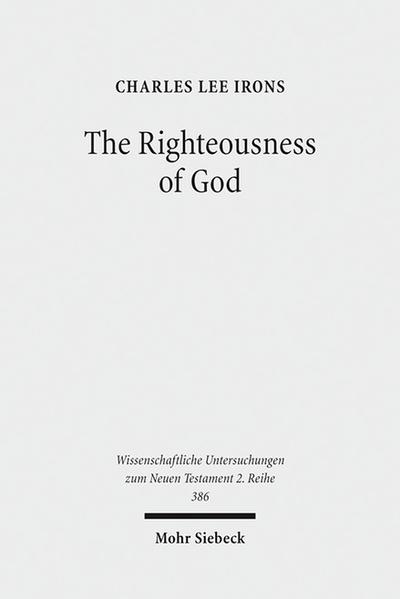IRONS,C., The Righteousness of God. Tübingen 2015.
The Righteousness of God. A Lexical Examination of the Covenant-Faithfulness Interpretation. 1. Aufl. Tübingen, Mohr Siebeck, 2015.
23 x 16 cm. XXIII, 444 S. Fadenbindung. (Wissenschaftliche Untersuchungen zum Neuen Testament 2. Reihe, 386). ISBN 9783161535185.
Advocates of the New Perspective on Paul appeal to the view that „righteousness“ in biblical theology is a Verhältnisbegriff (relational concept). This is the view that „righteousness“ does not mean conformity to a norm, nor is it an essentially legal concept; rather, „righteousness“ denotes the fulfillment of the demands of a relationship, since the relationship itself is the norm. This relational interpretation of „righteousness“ was first put forward by Hermann Cremer in 1899 and exercised a profound influence in biblical scholarship throughout the 20th century. It lies at the root of the New Perspective claim that „the righteousness of God“ in Paul is a cipher for God’s saving faithfulness to his covenant, a view defended by N. T. Wright, among others. Charles Lee Irons provides a critical examination of Cremer’s chief arguments for the relational, covenant-faithfulness interpretation. The author argues instead for the view that „the righteousness of God“ in Rom 1:17; 3:21-22; 10:3; 2 Cor 5:21; and Phil 3:9 is the status of righteousness that comes from God as a gift.
Bestellnummer: 2876VB
Gebundener Ladenpreis: EUR 114,--

